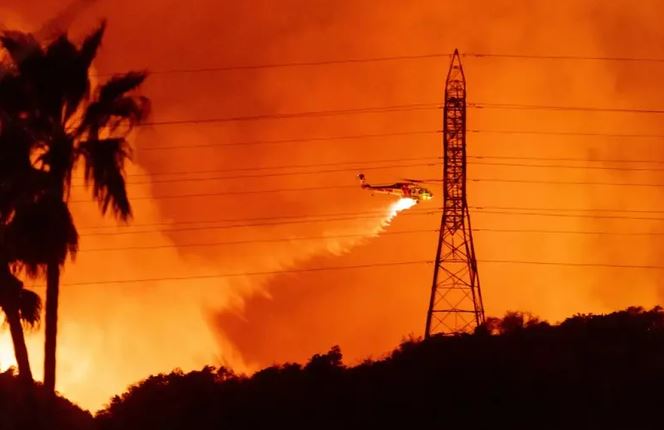As wildfires rage across Southern California, the destruction isn’t limited to property; the air quality in Los Angeles has plummeted, creating what experts are calling a ‘toxic soup’. The fires, including the devastating Palisades Fire, have not only consumed 14,000 acres and led to the evacuation of 180,000 residents but have also released a hazardous mix of chemicals into the atmosphere.
The smoke from these wildfires is laden with toxins from burnt household items, electronics, and vehicles, significantly worsening air quality. Health Secretary Xavier Becerra has issued a stern warning about the dangers:
“This is no longer just natural smoke—it’s deadly pollution.”
Also Read: Massive Wildfires Devastate Los Angeles: Death Toll Rises to 16
The implications for public health are severe. Exposure to this toxic smoke increases the risk of respiratory problems, exacerbates heart conditions, and has been linked to potential long-term neurological issues like dementia. Authorities are strongly advising residents to remain indoors, seal their homes, and use N95 masks if outdoor exposure is unavoidable.
The battle against these wildfires continues, with firefighters and emergency services working tirelessly to contain the blazes. However, the focus on health risks underscores the broader impact of these natural disasters, turning what was once a regional issue into a public health emergency.
Key Points:
- Toxic Smoke from Wildfires: Southern California wildfires are releasing dangerous chemicals into the air, severely impacting air quality.
- Health Secretary’s Warning: Xavier Becerra describes the smoke as “deadly pollution,” beyond just natural smoke.
- Health Risks: Includes respiratory issues, heart problems, and potential long-term risks like dementia.
- Protective Measures: Residents are urged to stay indoors, seal their homes, and wear N95 masks to minimize exposure.
- Extent of Damage: The Palisades Fire has led to 180,000 evacuations and destroyed 14,000 acres, marking it as one of LA’s most destructive fires.
- Public Health Emergency: The situation has escalated from a regional wildfire issue to a significant public health concern.



